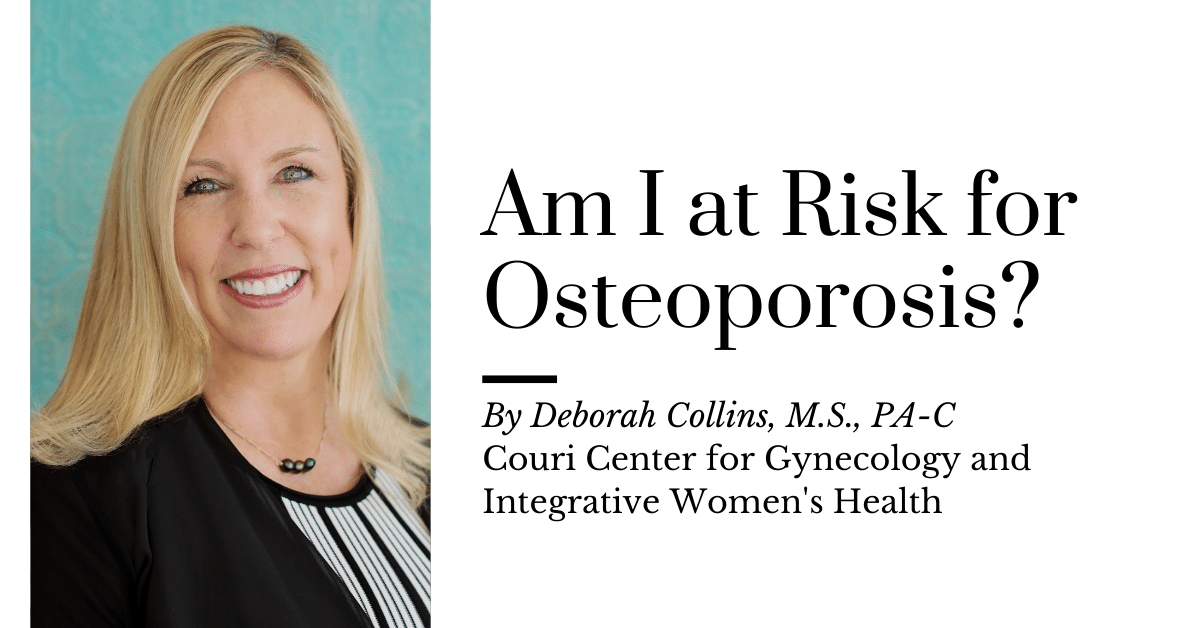
Did you know that 1 in 2 women over the age of 50 will have a fracture related to osteoporosis in their remaining lifetime? Osteoporosis causes bones to become weak and brittle — so brittle that a fall or even mild stresses such as bending over or coughing can cause a fracture. Osteoporosis-related fractures most commonly occur in the hip, wrist or spine. Bone is living tissue that is constantly being broken down and replaced. Osteoporosis occurs when the creation of new bone doesn’t keep up with the loss of old bone.
Now is the time to ask yourself, “should I be screened for osteoporosis?” What puts you at high risk over someone else in your same age group? Well, let’s talk for just a minute about that. Do you, or have you had any of the following problems?
- Low weight – Do you have low bone density? –If you are under 130 lbs., you are at risk of osteoporosis
- New fractures– Have you had a fracture since menopause? This could be a wrist, ankle, spine, or rib fracture. It does not have to be a hip fracture.
- Age – How long have you been in menopause? Most women lose the most bone in the first 3-5 years after menopause.
- Height loss– Are you a little shorter than you used to be? A loss of height > 1-2 inches could be an early warning sign.
- Menopause– Are you on hormone replacement therapy? If not, you are at a higher risk for a new bone fracture.
- Family History- Did your mom or sister have osteoporosis? This is also an excellent reason to get a baseline bone density scan after menopause.
We don’t often think about the impact of osteoporosis or how it will affect our independence, but it can make us hesitant to do the things we love. Let’s pose this question, “what would be the potential impact of a fracture on my lifestyle? “Can I risk being out of work, or in the hospital, if I incurred a fracture? Here are a few complications from osteoporosis fractures:
- Chronic pain and need for increased medications
- Possible hospitalization and risk of a Pulmonary Embolism or delayed healing process
- The need to use a walker or maybe an admission to a nursing home to recover
- The potential burden on my family and my finances if I can’t work due to recovery time.
At the Couri Center, we have a structured Bone Health Program that integrates nutrition, prevention, and osteoporosis screening. We emphasize early screening and risk factor modification to help maintain healthy and strong bones throughout your lifetime. Please call 692-6838 to schedule an appointment or discuss it with your provider at your annual exam. Osteoporosis screening is just as important as your Mammogram and Annual Pap Smear, so make 2021 your year of prevention!
Deb Collins, PA-C
